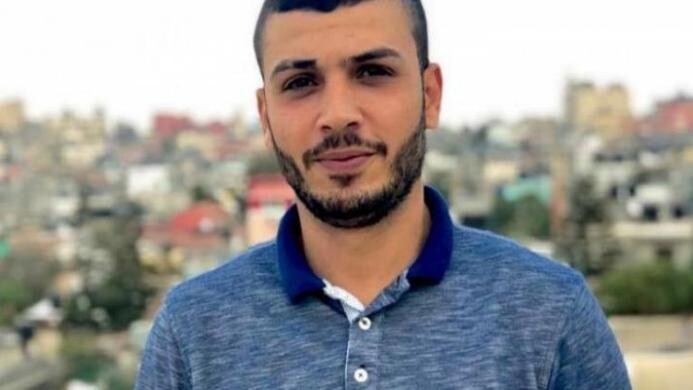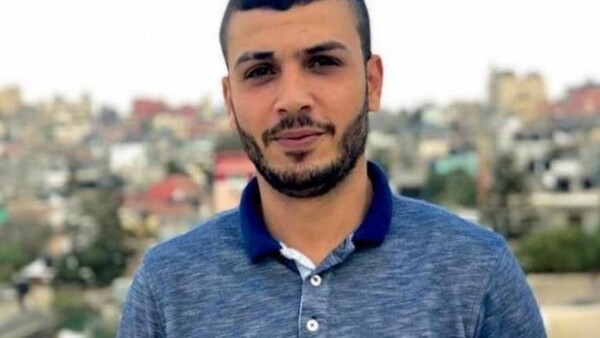I was born and raised in Dheisheh camp, a place that was supposed to be temporary, but over time has transformed into a space of ongoing struggle. The camp has never been a neutral or marginal area; it has always been at the heart of the confrontation, from the first intifada to the present day. The generations born in the camp did not inhabit the land from which their ancestors were uprooted, but they inherited a profound sense of displacement and injustice. Although the land may seem abstract to us—because we never actually lived there—it remains the core of the conflict, the link between past and future. The camp, too, is not just a residential space; it is a political space and a living collective memory. With every incursion, arrest, and martyrdom, we become more convinced that being a refugee was not a temporary state, but rather transformed into a way of life of struggle. The camp, which was supposed to be a symbol of the Nakba, has become a symbol of resistance.
In her book, "So Many Enemies: The Palestinian Experience in Lebanon," Rosemary Sayegh describes refugee camps as spaces of isolation and exclusion. This expression reflects the fact that the occupation considers these camps worthless areas, and their residents are treated as insignificant. This space, which is supposed to be a safe haven, is transformed into a place of constant threat, with ongoing incursions by occupation forces.
There is no safe space under occupation; even your own room can become a prison cell. My home, located in the middle of the camp, has been repeatedly raided, and on one occasion, was turned into an interrogation center. Soldiers stormed the house, brought in a group of handcuffed and blindfolded young men, and interrogated us one by one. The Israeli officer clearly stated, "This house will be an interrogation center."
As a family living in the camp, we have witnessed firsthand the effects of the occupation, which has affected all aspects of our lives. We live in constant anxiety, as prison has become part of our family life.
My father has been detained for 23 years, 16 of which have been in administrative detention. My mother was injured by an explosive dumdum shell in the chest, but she shouldered the responsibility of being both a mother and a father, overcoming all the hardships imposed by the occupation. My uncle Mohammed, known as the living martyr, defied death with amazing willpower for three years after being hit by explosive bullets that destroyed all the contents of his abdomen, except for his heart and lungs, before his heart finally stopped. My experience with administrative detention was long and painful; I was detained three times administratively, spending nearly five years without charge or trial.
Administrative detention is not a legal measure, but rather a tool of psychological repression. Its goal is not investigation, but breaking the will. The same interrogator told me during the last arrest: "There's no need to repeat the questions; they're the same." This reveals that the goal is nothing more than moral collapse. We can only address the catastrophic situation of prisoners today, especially after October 7, when repression has intensified, every Palestinian has become a "legitimate target," and the policy of "a good Palestinian is a dead Palestinian" is applied daily.
We are children of the Nakba, but it is not a history we remember, but a present we live. What happened in 1948 continues today, but with different tools. We no longer witness only mass displacement, but live under daily oppression: raids, arrests, land confiscation, random killings... All of this is nothing but an extension of the same colonial pattern, which reproduces the Nakba as a daily reality.
The violence of the occupation has become part of this daily reality, with the army not hesitating to use excessive force against civilians, reinforcing the sense among Palestinian youth that they live in an unsafe and unstable environment. As the aggression escalates, the violence increases dramatically, as Palestinians are viewed as a threat to which anyone who resists the occupation is punished.
The period after October 7 marked a turning point. The occupation revealed its true face, and everything was violated. The camps became persecuted areas. A raid was no longer linked to an arrest or an operation, but rather became a goal in itself, a constant message that we were under control. The economic situation collapsed, unemployment soared, and the social fabric was severely affected. Talk of emigration became a recurring theme, especially among young people, but we live at a crossroads: either stay and resist, or face a difficult and unknown departure.
What happened in Gaza has reshaped our consciousness. We no longer believe in the option of "compromise" or coexistence with this colonial regime. All the alliances that have emerged—Western and Arab—have reinforced our conviction that we are alone in this battle, and that there is no choice but to persevere.
Despite all these transformations, the dream of return and freedom has remained present in the Palestinian consciousness across three generations. It has become a form of resistance—a resistance to oblivion, normalization, and despair. Return is not merely a geographical return, but a restoration of rights, dignity, and sovereignty. For me, return is not merely a political possibility, but an internal and moral conviction. The aftermath of October 7 has reaffirmed that this conflict is not just about borders, but about existence itself. We are facing a settlement project that does not even recognize our existence.
But history teaches us that people, even under the harshest occupations, have triumphed. I believe in the inevitability of victory. Victory may not come tomorrow, but it begins when we cling to our dream, protect our memory, and refuse to be erased.








Share your opinion
Every day in the camp is a reminder that the Nakba is not over.